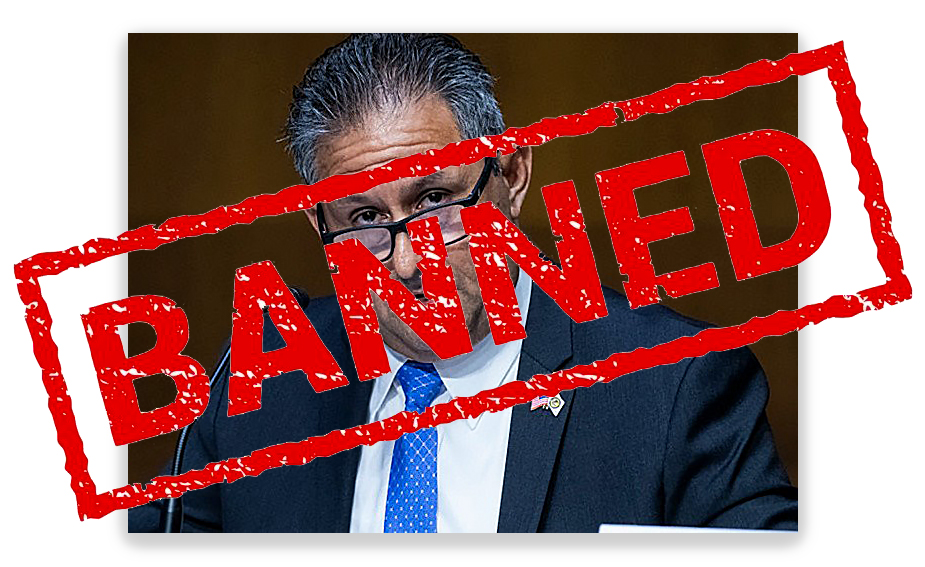We post news and comment on federal criminal justice issues, focused primarily on trial and post-conviction matters, legislative initiatives, and sentencing issues.
Today, this being the end of the month, we’re cleaning off our desktop…

SOME ODDS AND ENDS FROM LAST WEEK
Banned in Moscow: In response to President Biden’s expulsion of Russian diplomats because of the massive Solar Winds computer hack discovered last December, Vladimir Putin last week banned eight US officials from entering Russia.
The excluded government honcho include current top intelligence officials, former National Security Advisor John Bolton, FBI Director Christopher Wray, and… BOP Director Michael Carvajal.
 Huh? The media covering the story have explained the reasons for all of the expulsions except for Carvajal’s, which is usually noted as an afterthought.
Huh? The media covering the story have explained the reasons for all of the expulsions except for Carvajal’s, which is usually noted as an afterthought.
Putin knows why Carvajal is on the list. Carvajal maybe knows. But no one else seems to have any idea.
The Hill, Russia blocks key Biden Cabinet officials from entering in retaliation for sanctions (April 16, 2021)

FMC Carswell Catching Heat for Inmate Death: The Ft Worth, Texas Star-Telegram reported last week on the death of Martha Evanoff at FMC Carswell. The paper said that Evanoff “begged for medical attention for months, fellow inmates say, but was denied help until she died” on April 12.
Evanoff had surgery last November, but, according to a fellow inmate as well as Evanoff’s own emails to me, her intestines protruded through the surgical incision into her abdominal wall that had opened up. Ultimately the protrusion pinched the intestines shut, blocking them completely.
 “It was totally unnecessary. They could have done something to help her,” an inmate told the paper. “She is not the first person to die here from intestinal blockage.”
“It was totally unnecessary. They could have done something to help her,” an inmate told the paper. “She is not the first person to die here from intestinal blockage.”
Another inmate reportedly said that Evanoff begged for help about the pain she was in, and “this place did nothing. Medical indifference = murder,” the inmate wrote. “And it is just as bad as having a knee on your neck…”
In an email Evanoff wrote to me in early February, she said, “I have been extremely ill — mainly bedridden with only bathroom trips. Visibly, I have these ENORMOUS, HARD TO MISS – Incision hernias all over my abdominal area… makes it impossible for me to do anything… One in particular sticks way out like I am pregnant with 8 children… Please help me out of here BEFORE I die here…”
A suit against FMC Carswell brought by over 70 named inmates alleging negligent medical care is pending in the US District Court for the Northern District of Texas.
Ft Worth Star-Telegram: Woman at Fort Worth medical prison died after staff ignored cries for help, women say (April 20, 2021)
Blake v. Carr, Case No 4:20cv807 (N.D. Texas)
 Cohen Court Nixes Earned Time Credits: Former Trump lawyer Michael Cohen, on CARES Act home confinement until his sentence ends in November, brought a habeas corpus action to win earned time credits for programs he took while still locked up.
Cohen Court Nixes Earned Time Credits: Former Trump lawyer Michael Cohen, on CARES Act home confinement until his sentence ends in November, brought a habeas corpus action to win earned time credits for programs he took while still locked up.
 Last week, Mike’s judge turned him down. “The statute clearly envisions that the program will be gradually implemented during the phase-in period. During this period, the [First Step] Act requires the BOP to provide evidence-based recidivism reduction activities for all prisoners before the two-year anniversary of the date that the BOP completes a risk and needs assessment for each prisoner, namely by January 15, 2022. The statute also requires the BOP during the phase-in period to develop and validate the risk and needs assessment to be used in the reassessments of risk of recidivism, while prisoners are participating in and completing evidence-based recidivism programs. But the statute does not require the BOP to begin awarding Earned Time Credits during the phase-in period. Indeed, the statute specifically leaves to the discretion of the BOP whether to expand existing programs and whether to offer to prisoners who successfully participate in such programs incentives and rewards.”
Last week, Mike’s judge turned him down. “The statute clearly envisions that the program will be gradually implemented during the phase-in period. During this period, the [First Step] Act requires the BOP to provide evidence-based recidivism reduction activities for all prisoners before the two-year anniversary of the date that the BOP completes a risk and needs assessment for each prisoner, namely by January 15, 2022. The statute also requires the BOP during the phase-in period to develop and validate the risk and needs assessment to be used in the reassessments of risk of recidivism, while prisoners are participating in and completing evidence-based recidivism programs. But the statute does not require the BOP to begin awarding Earned Time Credits during the phase-in period. Indeed, the statute specifically leaves to the discretion of the BOP whether to expand existing programs and whether to offer to prisoners who successfully participate in such programs incentives and rewards.”
Cohen v. United States, Case No 20-CV-10833, 2021 US Dist LEXIS 75852 (S.D.N.Y. April 20, 2021)
Law and Crime, Federal Judge Denies Michael Cohen’s Petition to Cut His Sentence Under Trump’s First Step Act (April 20, 2021)

I’ll Be Watching You: In a report released last week, the Treasury Inspector General for Tax Administration said the IRS identified more than 4,500 fraudulent tax returns using a prisoner’s social security number in 2019, claiming refunds totaling over $14 million.
 The amounts could have been higher, but since 2017, the IRS has set up processes to stop tax refunds from being issued to prisoners and people who steal prisoners’ SSNs. One of them involves the BOP and state departments of corrections complying with a requirement to provide the IRS with an annual list of all prisoners incarcerated within their prison system. Another program, which the Inspector General said should be expanded, is the Blue Bag Program, in which the IRS partners with the BOP and state corrections departments to identify potentially fraudulent tax returns and refunds. The IRS program automatically pulls prisoner tax returns for fraud analysis.
The amounts could have been higher, but since 2017, the IRS has set up processes to stop tax refunds from being issued to prisoners and people who steal prisoners’ SSNs. One of them involves the BOP and state departments of corrections complying with a requirement to provide the IRS with an annual list of all prisoners incarcerated within their prison system. Another program, which the Inspector General said should be expanded, is the Blue Bag Program, in which the IRS partners with the BOP and state corrections departments to identify potentially fraudulent tax returns and refunds. The IRS program automatically pulls prisoner tax returns for fraud analysis.
Accounting Today, IRS cracks down on prisoner tax fraud and identity theft (April 19, 2021)
– Thomas L. Root






